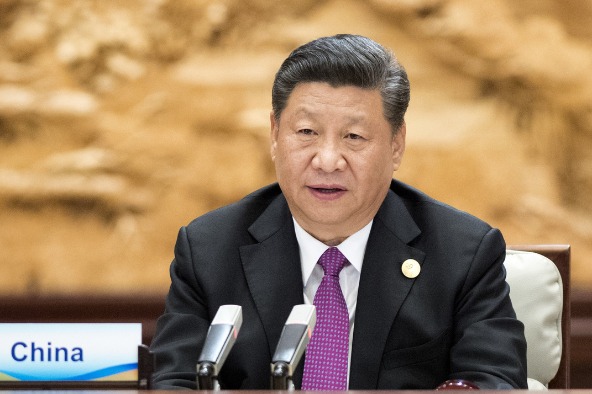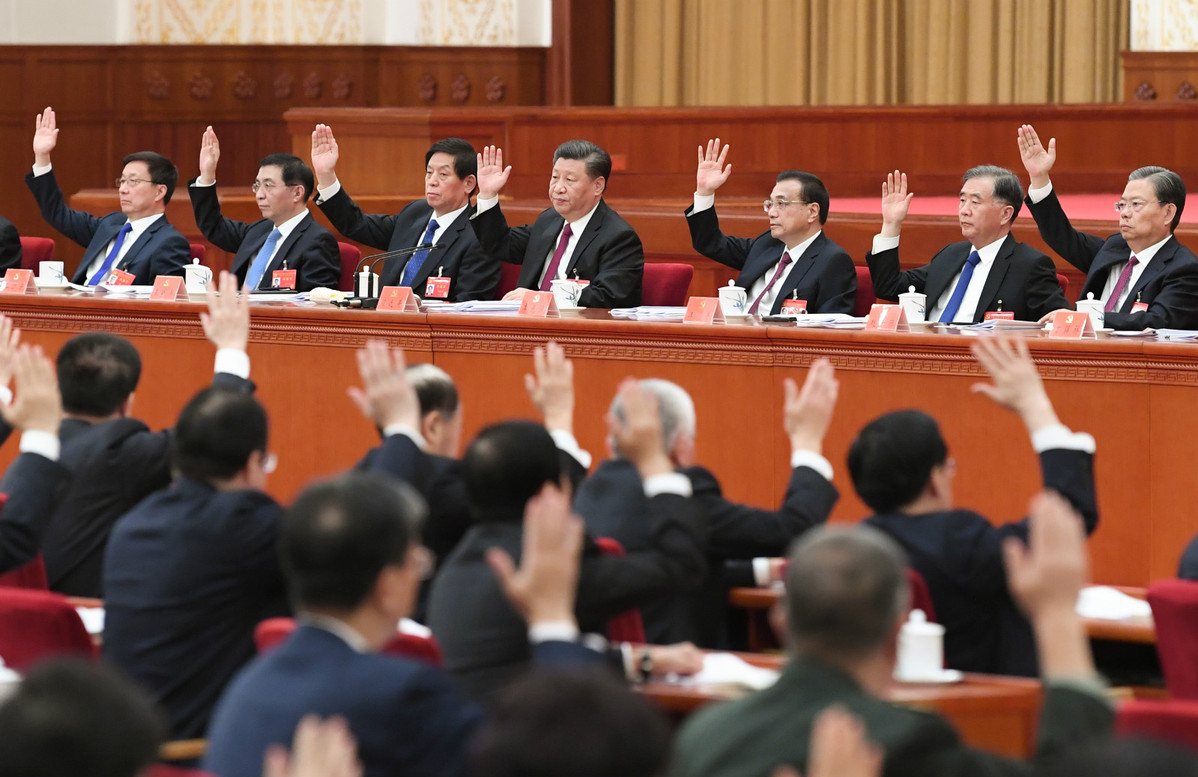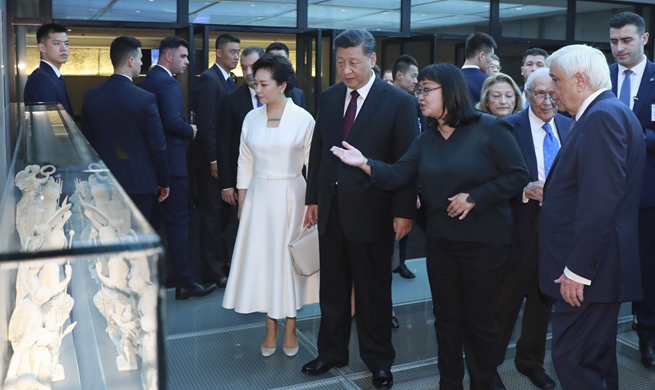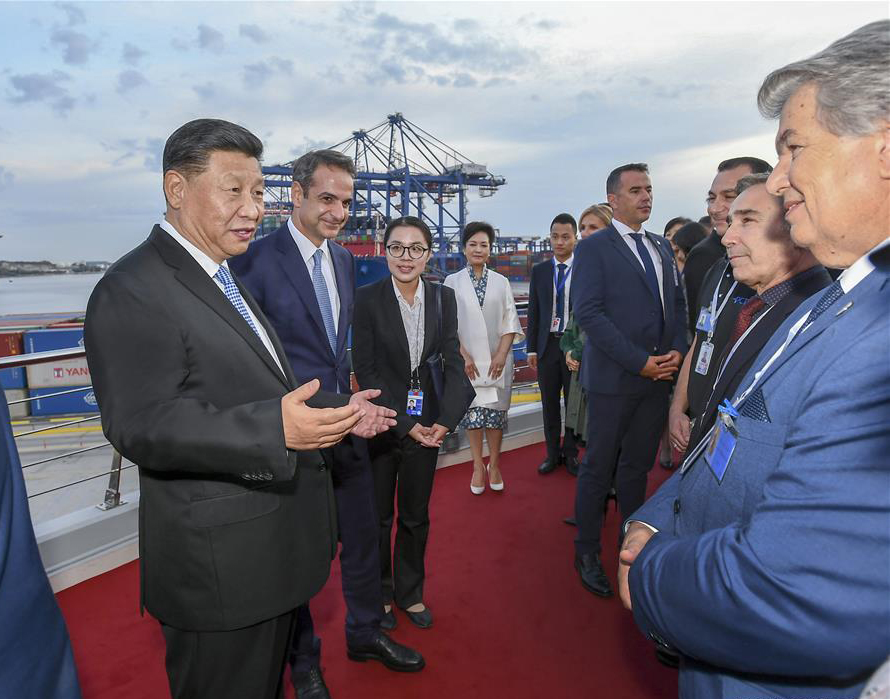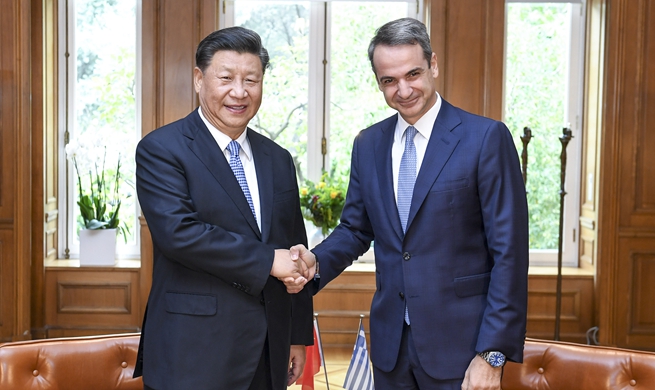Xi: Phase one deal benefits whole world
President Xi Jinping and his counterpart in the United States, President Donald Trump, set the tone in a telephone call on Friday for how Beijing and Washington should deal with their frictions in the next stage, after the two sides reached a phase one trade deal, observers said.
The telephone talks were also an opportunity for the two presidents to communicate directly on some other issues that have hampered the two countries' relationship, they said. For example, China has protested US interference in its internal affairs regarding the issues involving the Hong Kong Special Administrative Region and the Xinjiang Uygur and Tibet autonomous regions.
Both Xi and Trump said the phase one economic and trade agreement benefited China, the US and the whole world.
Xi said that economic and trade cooperation between China and the US has made significant contributions to the stability and development of both bilateral relations and world economic growth.
Noting that the interests of the two countries have become increasingly intertwined, Xi observed that there are bound to be some differences along the path of cooperation. But as long as both sides continue to keep in mind the main stream of China-US economic and trade cooperation, which features mutual benefits and win-win outcomes, and always respect each other's national dignity, sovereignty and core interests, they will overcome any difficulties, he said.
For his part, Trump said the phase one deal has received a positive response from the markets of both countries and the world, and the US side stands ready to maintain close contact and communication with the Chinese side for the deal to be quickly signed and implemented.
The phone call came after trade negotiators reached an agreement that resulted in the suspension of new tariffs and the potential reduction of existing ones. New tariffs had been scheduled to kick in on Dec 15.
Observers see the trade agreement as an indication that the two countries are capable of steadying their relationship and are willing to solve problems through negotiation in the face of multiple headwinds.
"It is important to find areas of convergence, areas of agreement, and build upon those," International Monetary Fund Managing Director Kristalina Georgieva said in a video interview on weekly.caixin.com. "In that sense, China and the US have found the space to agree on the phase one deal."
"We all see this as a possibility for the two largest world economies to find a pathway for agreement," Georgieva added.
During the phone call with Trump, Xi also expressed "grave concern" over recent "negative statements and actions" from various parties in the US on issues related to Taiwan, Hong Kong, Xinjiang and Tibet. He said those have interfered in China's internal affairs and harmed China's interests, which is detrimental to the mutual trust and bilateral cooperation.
Xi told Trump that China hopes the US will seriously implement the important points of consensus reached in various meetings and phone conversations, pay high attention and attach great importance to China's concerns and prevent bilateral relations and important agendas from being disturbed.
Trump said he looks forward to maintaining regular communication with Xi by various means, adding that he is confident both countries can properly handle the differences, and US-China relations can maintain smooth development.
Ruan Zongze, executive vice-president of the China Institute of International Studies, said it's important for Washington and Beijing to seek common interests, whether from the perspective of bilateral ties or upholding global peace and stability.
China-US relations are mutually beneficial and win-win in nature, Ruan said, and the key is that each side needs to seriously consider the other's core concerns.
During the call, Xi and Trump also exchanged views on the situation in the Korean Peninsula.
Tibet Stories

70 Years on: Drawing the newest, most beautiful blueprint on Tibetan Plateau
There have been three construction surges in Tibet in the last century.
